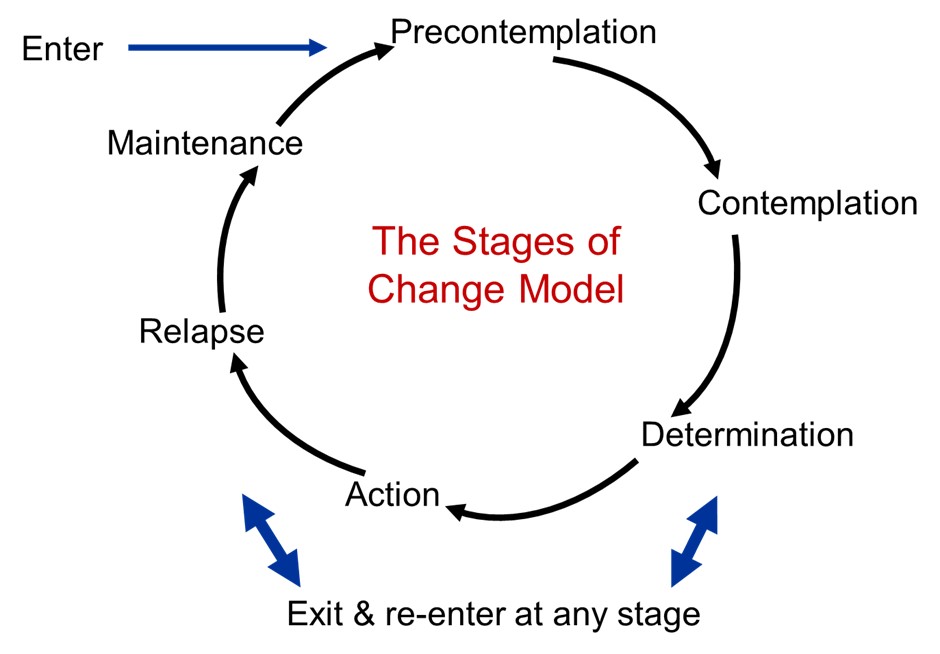
Here are the four stages of an alcohol treatment centre programme:
1) Treatment Initiation
2) Early Abstinence
3) Maintaining Abstinence
4) Advanced Recovery.
Few alcoholics’ recoveries are this direct. We move back and forth between the four stages, some alcoholics more than others. Knowing where you are in the 4 stages of an alcohol treatment centre programme can help you appreciate where you are in the recovery process.
It’ll also clearly define what you still need to do.
| Stage of Recovery | Description |
| Treatment Initiation |
It’s common to have feelings of apprehension, fear and ambivalence.
|
| Early Abstinence |
This can be a difficult phase with RHT (Refusal of Hospital Treatment) / self-discharge leading to relapse.
|
| Maintaining Abstinence |
Professionals will help to:
|
| Advanced Recovery |
|
Alcohol Treatment Centre Programme
Initiation is usually a very stressful time for patients, and more so for families. No one has the life objective of becoming an alcoholic. Realising the severity of the problem and agreeing to help can be very difficult. Getting them to agree to treatment can be very difficult.
 Alcoholics, and heroin addicts too, often have a high degree of ambivalence. They are pre-contemplative, yet to fully consider and acknowledge their alcoholism and its full impact. Ambivalent alcoholics describe the sense of being torn between two camps, two opposing sides.
Alcoholics, and heroin addicts too, often have a high degree of ambivalence. They are pre-contemplative, yet to fully consider and acknowledge their alcoholism and its full impact. Ambivalent alcoholics describe the sense of being torn between two camps, two opposing sides.
They have two conflicting thoughts “Yes, I’m in deep trouble and I need help” versus “The problem isn’t that bad! I can manage on my own. My boss/wife /mother is a drama queen.” There are incredibly strong drives to keep drinking as their brains have been hijacked by alcoholism. It’s important to acknowledge these contradictory thoughts and realise that they are normal for the addicted brain and that the madness will subside.
A quality alcoholism treatment team will help the patient to assess costs and benefits. Looking more clearly at alcoholism and its consequences can help instil motivation to engage in treatment and access recovery. This is one of the ways that professional help is invaluable.
A cost/benefit analysis is a tool often used by CBT (Cognitive Behavioural Therapy) & DBT (Dialectical Behaviour Therapy) therapists. You can download the Changes Addiction Rehab cost/benefit worksheet here and the video below offers an in-depth explanation. It’s always best to process this work with a qualified addiction professional.
The “Stages of Change Model” by DiClemente and Prochaska recognizes five official phases: pre-contemplation, contemplation, preparation, action, and maintenance. Relapse, an unofficial sixth stage, is frequently added because relapse can be a reality for many alcoholics trying to make the necessary changes to access stable recovery.

Pic: Courtesy of Boston University School of Public Health
The second stage, early abstinence, can be the most challenging for many. In this phase, you may wrestle with withdrawal symptoms as you abstain from alcohol. a quality alcohol treatment centre’s team will help you to identify triggers that may lead to relapse and implement ways to cope without drinking.
You’ll need professional help to continue developing new recovery skills to navigate moving forward. You’re not alone in your treatment and recovery. Addiction counsellors and other therapists will guide and support you through the four stages of alcoholism treatment.
 Thirdly, maintaining abstinence comes into play once you’ve successfully navigated early abstinence. This stage begins about three months into sobriety and can last up to five years. It involves a shift from short-term recovery goals to a more stable, long-term sobriety. Your therapist will help refine coping skills and rebuild relationships damaged by your drinking.
Thirdly, maintaining abstinence comes into play once you’ve successfully navigated early abstinence. This stage begins about three months into sobriety and can last up to five years. It involves a shift from short-term recovery goals to a more stable, long-term sobriety. Your therapist will help refine coping skills and rebuild relationships damaged by your drinking.
This is an essential base from which to find a sense of purpose outside of alcohol. This is where the healing truly begins, as you get to reconstruct your life in a meaningful way.
The final stage, advanced recovery, is the moment when you truly start to live a new life. You’ve learned to manage your triggers, you’ve rebuilt your relationships, and you’ve discovered a life outside of alcohol. Now, the focus is on living a balanced, fulfilling life, where the risk of relapse becomes significantly diminished. You’ll work on cultivating a balanced lifestyle, ensuring you maintain your physical health, manage stress, and continue growing personally and professionally.
After navigating through the stages of recovery, it’s critical not to overlook the importance of long-term aftercare. Aftercare provides a continuous supportive network that reinforces the skills you’ve developed during your treatment. It helps prevent relapse, fosters personal growth, and encourages a fulfilling life of sobriety.
The benefits of long-term aftercare are numerous and profound. Firstly, it can provide ongoing support and guidance, which can be crucial in the initial years of recovery. Secondly, it aids in keeping you grounded, reminding you of the tools and strategies you’ve learned during treatment. This way, if you find yourself facing triggers or stressors, you’re better equipped to manage them without resorting to alcohol.
Thirdly, aftercare often includes involvement in a sober community, providing you with a network of individuals who understand your alcoholism. Being part of a community not only makes you feel less isolated but also allows you to help others in their recovery. It’s a give-and-take relationship that adds value to everyone involved.
Fourthly, long-term addiction treatment and aftercare can assist in ongoing personal and professional development. Education, skills training, and job placement assistance can help you reintegrate into society and establish a fulfilling life outside of your past addiction.
Lastly, long-term treatment, like aftercare, reinforces what’s been learned in addiction rehab, and helps commitment to the recovery lifestyle. Ensure that your alcohol treatment centre programme has long-term options available. There is no quick fix for addiction. Depending on the severity of your alcoholism you may need to participate in an aftercare or outpatient programme for a few months. We know that long-term alcohol rehab has better results.
 In fact, for severe AUD (Alcohol Use Disorder), treatment lengths of less than 90 days are of little value. Your treatment plan will outline a long-term care package that, if you follow it closely, will greatly improve your chances of stable recovery. Regular addiction counselling can help you to maintain physical, mental, and emotional health. Having an external source of accountability is important for all stages of recovery, more so in early abstinence and as you move towards maintaining abstinence and advanced recovery.
In fact, for severe AUD (Alcohol Use Disorder), treatment lengths of less than 90 days are of little value. Your treatment plan will outline a long-term care package that, if you follow it closely, will greatly improve your chances of stable recovery. Regular addiction counselling can help you to maintain physical, mental, and emotional health. Having an external source of accountability is important for all stages of recovery, more so in early abstinence and as you move towards maintaining abstinence and advanced recovery.
Alcoholism is a chronic illness. It’s progressive and can be fatal. It can be treated, but not cured. So recovery is a lifelong adventure, and long-term aftercare is the map that keeps you on track.
As you learn more about the 4 Stages of an Alcohol Treatment Centre Programme, remember the words of Mark Twain: “Giving up smoking is the easiest thing in the world. I know because I’ve done it thousands of times.” Just like Twain and his cigars, your recovery may be filled with ups and downs. But with determination, professional help, and a little humour, the path to sobriety is within reach.
Many patients, and their families, feel shame about having developed this problem. Addiction issues run in families, so it can feel overwhelming and easier to just hide your head in the sand. This deep shame about alcoholism can prevent you from asking for help. We have spent decades honing our abilities solely to help alcoholics and their families. We’ve dedicated our lives to the treatment of alcoholism because we love helping people get their lives back on track. Please call us now. We want to help. And your medical aid pays for rehab.
A quality alcohol treatment centre programme will offer evidence-based alcoholism therapies to provide you with tools to gain a more acute understanding of the extent of your drinking, its consequences and what you can do to take responsibility for your recovery. This is a crucial first step in the process without which you won’t see the sense in making the necessary lifestyle changes. When you’ve accomplished the essential skills taught in the early phase of the alcohol treatment centre programme, you’ll learn how to manage triggers, cope with stress, and build a fulfilling life free from alcohol. Understanding the 4 stages of treatment & recovery can help you appreciate where you are in the process and clearly define what you still need to do.
